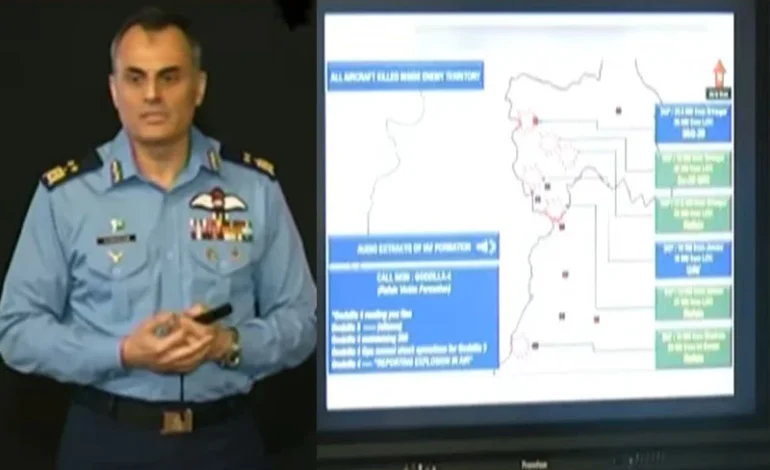
Indian Air Marshal Hints at Rafale Jet Losses, PAF Strike Success
In a recent press conference, Indian Air Marshal A.K. Bharti made a vague but telling remark that has drawn attention globally. Responding to questions about the reported destruction of Rafale fighter jets by the Pakistan Air Force (PAF), the Air Marshal said, “We are currently in a state of conflict, and losses are a part of war,” without directly confirming or denying the reports.
Despite being asked twice about the number of assets lost—especially in light of international media coverage suggesting multiple Rafale jets were downed—Air Marshal Bharti chose not to share details, further fueling speculation.
A journalist asked, “Can we have a figure on how many assets have been lost? International media is reporting Rafale jets being shot down. Can you clarify?” To this, the Air Marshal reiterated, “We cannot disclose the details of losses at this time. The war situation is ongoing, and these matters are sensitive.”
The Indian military’s continued evasive responses to questions about Rafale losses have intensified scrutiny, especially as international media continues to explore the story.
Pakistan’s Response: Solid Evidence and Press Briefing
The lack of clarity from Indian officials contrasts sharply with Pakistan’s transparency. On the night of May 6–7, Indian forces reportedly launched strikes on various regions in Pakistan and Azad Kashmir. In retaliation, Pakistan shot down five Indian fighter jets—three of which were confirmed to be Rafales.
In a press briefing, Pakistan Air Vice Marshal Aurangzeb presented hard evidence to international journalists, including tail numbers, wreckage locations, and intercepted communications. One notable audio recording featured an Indian Rafale formation leader stating, “We’ve lost a member. An explosion was heard in the air.”
Indian silence on this matter has only added to growing international doubts and questions about transparency in India’s military reporting. Even Indian media outlets acknowledged the potential losses shortly after the conflict.






